CLaSIC 2024
📢 CLaSIC 2024 Proceedings Now Published!
ISBN: 978-981-94-1903-6 | DOI: 10.5281/zenodo.14499335
View in the "Proceedings" Tab
above (in the Desktop version)
or below (in the mobile version)
🗓️ Deadline for Full Paper Submission: 31 January 2025
All manuscripts for consideration in the peer-reviewed Scopus-indexed Tier-2 publication of selected conference papers must be submitted to:
E-mail: CLaSIC@nus.edu.sg
Use the official stylesheet available at:
https://go.clasic.live/stylesheet
10th Centre for Language Studies International Conference (CLaSIC)
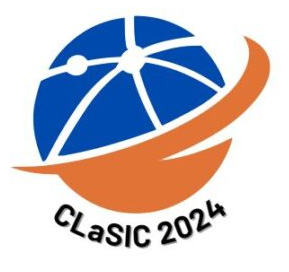 |
Evolving Trends in Foreign Language Education:
|
Welcome MessageDear colleagues and friends, On behalf of the organizing committee, I am delighted to invite you to the Inaugurated in 2004, the biennial CLaSIC has been a platform for academics, researchers, and professionals |
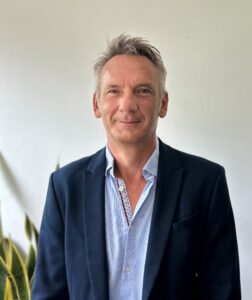 |
| For its tenth iteration in 2024, we invite proposals of paper and poster presentations on the theme of: Evolving Trends in Foreign Language Education: Past Lessons, Present Reflections, Future Directions. |
|
| UPDATE: SUBMISSIONS ARE NOW CLOSED. | |
| To those who have attended CLaSIC before, we look forward to welcoming you back.
To new participants, you are most welcome to join our CLaSIC family of Foreign Language Education specialists. Yannick Appriou Chair |
|
About CLaSIC
|
CLaSIC is a biennial conference organised by the Centre for Language Studies of the National University of Singapore, and aims to bring together academics, researchers, and professionals from Asia and beyond for a productive and meaningful exchange of insights, experiences, views, and perspectives on current and future developments in foreign language teaching and learning. The conference serves as a platform for participants to report on current research and practices in foreign language education and related disciplines. Since the inaugural conference in December 2004, CLaSIC has been a resounding success, drawing researchers and professionals from all over the world. Leading scholars in foreign language education, applied linguistics, and second language acquisition have featured as keynote speakers, among them Anna Uhl Chamot, William Littlewood, Richard Schmidt, Elaine Tarone, Amy Tsui, Michael Byram, Claire Kramsch, Rod Ellis, and Michael Levy. Six scholarly volumes with selected papers from CLaSIC 2004, 2006, 2008, 2010, 2012, and 2014 have been published by the international publishing house, De Gruyter Mouton (Boston and Berlin). They are titled: Foreign Language Teaching in Asia and Beyond: Current Perspectives and Future Directions, Processes and Process-Orientation in Foreign Language Teaching and Learning, Media in Foreign Language Teaching and Learning, Perspectives on Individual Characteristics and Foreign Language Education; Culture and Foreign Language Education: Insights from Research and Implications for the Practice; and New Perspectives on the Development of Communicative and Related Competence in Foreign Language Education. |
Asia-Pacific Symposium for the Teaching of Asian Languages (APSTAL)
|
In 2008, CLaSIC hosted for the first time a symposium on Asian languages teaching jointly with the Australian National University. The symposium has since been expanded and involved further reputable partners such as the Arizona State University, City University of Hong Kong, Chinese University of Hong Kong, University of California, Los Angeles, University of Hawai'i, INALCO, University of Madison-Wisconsin, RMIT University, and Tokyo University of Foreign Studies in 2010-2018. |
Keynote Speakers
| 𝐒𝐚𝐫𝐚𝐡 𝐌𝐞𝐫𝐜𝐞𝐫 (University of Graz, Austria) |
𝐓𝐡𝐨𝐦𝐚𝐬 𝐂𝐡𝐢𝐮 (The Chinese University of Hong Kong) |
𝐗𝐢𝐚𝐨𝐬𝐡𝐢 𝐋𝐢 (Michigan State University) |
𝐉𝐞𝐬𝐬𝐢𝐞 𝐁𝐚𝐫𝐫𝐨𝐭 (National University, Philippines) |
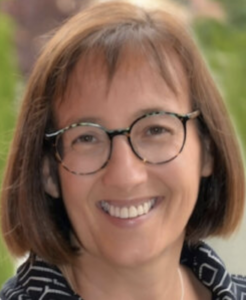 |
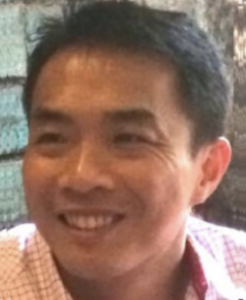 |
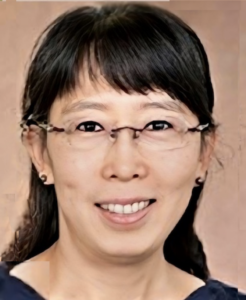 |
 |
| 5 Dec 2024 9:30 AM |
5 Dec 2024 2:00 PM |
6 Dec 2024 9:00 AM |
7 Dec 2024 9:00 AM |
| "𝐒𝐮𝐬𝐭𝐚𝐢𝐧𝐢𝐧𝐠 𝐭𝐡𝐞 𝐃𝐫𝐢𝐯𝐞: 𝐏𝐫𝐢𝐨𝐫𝐢𝐭𝐢𝐳𝐢𝐧𝐠 𝐋𝐚𝐧𝐠𝐮𝐚𝐠𝐞 𝐓𝐞𝐚𝐜𝐡𝐞𝐫 𝐖𝐞𝐥𝐥𝐛𝐞𝐢𝐧𝐠 𝐭𝐨 𝐈𝐠𝐧𝐢𝐭𝐞 𝐋𝐞𝐚𝐫𝐧𝐞𝐫 𝐄𝐧𝐠𝐚𝐠𝐞𝐦𝐞𝐧𝐭" | "𝐀 𝐇𝐮𝐦𝐚𝐧-𝐀𝐈 𝐂𝐨𝐥𝐥𝐚𝐛𝐨𝐫𝐚𝐭𝐢𝐨𝐧 𝐅𝐫𝐚𝐦𝐞𝐰𝐨𝐫𝐤 𝐟𝐨𝐫 𝐒𝐞𝐥𝐟-𝐫𝐞𝐠𝐮𝐥𝐚𝐭𝐞𝐝 𝐋𝐞𝐚𝐫𝐧𝐢𝐧𝐠 𝐢𝐧 𝐋𝐚𝐧𝐠𝐮𝐚𝐠𝐞 𝐄𝐝𝐮𝐜𝐚𝐭𝐢𝐨𝐧" | "𝐈𝐧𝐭𝐞𝐠𝐫𝐚𝐭𝐢𝐧𝐠 𝐈𝐧𝐭𝐞𝐫𝐜𝐮𝐥𝐭𝐮𝐫𝐚𝐥 𝐂𝐨𝐦𝐦𝐮𝐧𝐢𝐜𝐚𝐭𝐢𝐨𝐧 𝐰𝐢𝐭𝐡 𝐂𝐡𝐢𝐧𝐞𝐬𝐞 𝐚𝐬 𝐚 𝐅𝐨𝐫𝐞𝐢𝐠𝐧 𝐋𝐚𝐧𝐠𝐮𝐚𝐠𝐞 (𝐂𝐅𝐋) 𝐓𝐞𝐚𝐜𝐡𝐢𝐧𝐠 𝐓𝐡𝐫𝐨𝐮𝐠𝐡 𝐅𝐢𝐥𝐦𝐬" | "𝐇𝐚𝐫𝐧𝐞𝐬𝐬𝐢𝐧𝐠 𝐀𝐈 𝐓𝐨𝐨𝐥𝐬 𝐟𝐨𝐫 𝐃𝐞𝐯𝐞𝐥𝐨𝐩𝐢𝐧𝐠 𝐄𝐋𝐓 𝐌𝐚𝐭𝐞𝐫𝐢𝐚𝐥𝐬: 𝐒𝐭𝐫𝐢𝐤𝐢𝐧𝐠 𝐚 𝐁𝐚𝐥𝐚𝐧𝐜𝐞 𝐁𝐞𝐭𝐰𝐞𝐞𝐧 𝐈𝐧𝐧𝐨𝐯𝐚𝐭𝐢𝐨𝐧 𝐚𝐧𝐝 𝐄𝐭𝐡𝐢𝐜𝐚𝐥 𝐔𝐬𝐞" |
| Abstract: It is widely acknowledged that the teacher is central to all that happens in the classroom, managing not only the ongoing human dynamics but ensuring that learning tasks are purposeful, effective, and engaging. Yet, amid this myriad of demands on teachers, very little attention is typically paid to the needs of the teachers themselves. However, as I will show, this is a fundamental mistake given that language teacher wellbeing is the catalyst for igniting learner engagement. The talk will begin by explaining what is meant by wellbeing and briefly reporting on research which reveals how it develops over time and what personal and socio-contextual factors affect it. Next, we will look at how learner engagement is fostered in language classrooms. Then we will make the explicit connections between language teacher wellbeing and learner engagement showing how they are two sides of the same coin. The talk will conclude with suggestions for practical pathways to support language teacher wellbeing. The core premise is that we must begin by caring for the teachers so that they can become the best version of themselves and foster an enriching and engaging experience for their learners. If we sustain the drive of the language teachers, they can inspire the drive for engagement among their learners. | Abstract: Artificial intelligence (AI) applications, including ChatGPT and speech recognition, track student learning progress, give immediate feedback, and offer personalized learning content. They have the potential to enhance student engagement in self-regulated learning. However, students who lack strong language proficiency and self-regulated learning abilities may not actively engage in the learning process, resulting in a failure to improve their language proficiency, particularly among young learners. This implies that in K–12 education, self-regulated foreign language learning with AI requires teacher guidance. In this talk, the author presented a human-AI collaboration framework for self-regulated learning that consists of three relationships: student-AI, student-teachers, and teacher-AI. The relationships described the roles of students, teachers, and AI in self-regulated learning. Applying Self-Determination Theory, the author explores student engagement through self-regulated learning activities with ChatGPT and investigates their impact on L2 K–12 students' English learning using an intervention design, which showed significant improvements. They advocate for language teachers to co-design EDUGPT for foreign language education. | Abstract: There is a widespread agreement that the goal of foreign language education needs to move beyond linguistic level and incorporate culture so that learners become effective intercultural communicators and act appropriately in authentic target culture settings (Byram, 1997; 2008). Research has shown that film is one of the most effective tools to teach culture (Mallinger & Rossy, 2003) because it provides authentic representation of culture and language, appeals to students’ interest, and encourages critical reflections. In addition, in recent decades, there has been a strong call for courses that connect language and content such as literature, culture, and film in foreign language classrooms (Coyle, Hood, & Marsh, 2010; Snow, Met, & Genesee, 1989). Building on these insights, this presentation introduces action research in a film course for Chinese learners at an American university, where intercultural communication is the main theme and films act as the unifying thread. It connects Chinese language, culture, and content areas – intercultural communication and film. Covering course rationale, film selection, material planning, assignment design, and student feedback, the presentation demonstrates a teaching practice applicable to other foreign language classrooms. | Abstract: Developing high-quality ELT materials in ESL and EFL contexts presents significant challenges, such as ensuring cultural relevance, addressing diverse learner needs, and aligning assessments with standards, all while managing limited resources and time constraints. Generative AI offers a promising solution by streamlining development and enabling the creation of adaptable, inclusive materials. This presentation explores how AI tools like ChatGPT can refine learning objectives, support differentiated instruction, assist with brainstorming, source multimodal texts, generate sample images, refine assessments, and provide automated feedback. Supplementary tools such as StoryToolz and Grammarly assist in adjusting text complexity, refining assessments, and ensuring precise and clear language. These tools can help teachers save significant time while maintaining high-quality outputs. Despite its efficiency, generative AI faces challenges, including potential bias, inaccuracies, and a lack of human nuance. Human oversight remains crucial to ensure ethical practices and cultural relevance. The session concludes with reflections on these insights and recommendations for equipping teachers with AI literacy to balance technological innovation with ethical responsibility. |
| Biography: Sarah MERCER is Professor of Foreign Language Teaching at the University of Graz, Austria, where she is Head of ELT methodology. Her research interests include all aspects of the psychology surrounding the foreign language learning experience. She is the author, co-author and co-editor of several books in this area including, ‘Exploring Psychology for Language Teachers’ (IH Ben Warren Prize) and three ELTon Finalists (‘Teacher Wellbeing’, ‘Engaging Language Learners in Contemporary Classrooms’, and ‘Psychology in Practice’). She has also published over 150 book chapters and journal articles. She has served as Principal Investigator on several funded research projects, has worked on the editorial board of various journals, was co-editor of the journal System for several years, is co-editor of Multilingual Matters’ Psychology of Language Learning and Teaching book series, is currently president-elect of the International Association for the Psychology of Language Learning (IAPLL), is ambassador for IATEFL, and has served as a consultant on several international projects. In 2018, she was awarded the Robert C. Gardner Award for excellence in second language research by the International Association of Language and Social Psychology (IALSP). | Biography: Thomas CHIU is an assistant professor of digital education at the Chinese University of Hong Kong, as well as the associate director of the Centre for University and School Partnership and the Centre for Learning Sciences and Technologies. He has published over 110 book chapters, conference articles, and journal papers across educational technology, psychology, and language education. His work has significantly contributed to understanding the integration of digital innovations in pedagogy and learning sciences. He was named among the top 2% most-cited scientists in education in both 2022 and 2023 by Stanford University, reflecting his global impact in the field. He currently serves as an associate editor for four internationally renowned SSCI journals (three Q1 and one Q2), where he provides editorial guidance for leading-edge research in educational technology and innovation. His research collaborations with local, regional, and international scholars have secured over USD 32 million in external grants (USD 6.2 million as PI/CCO-PI; USD 25.5 million as CO-I), enabling transformative projects in education. As an interdisciplinary researcher, he collaborates with language education experts worldwide, reshaping language education and research. | Biography: Xiaoshi LI is an Associate Professor of Chinese at Michigan State University, known for her expertise in sociolinguistics, Mandarin Chinese variation in first and second language contexts, Chinese language and culture, applied linguistics, and intercultural issues in second and foreign language teaching. Her pioneering research in applying the sociolinguistic variationist paradigm to second language Chinese has advanced understanding of linguistic variation and its role in language pedagogy. Her publication record includes an edited volume on second and heritage language variation, numerous articles in high-impact journals, and several book chapters. Her work bridges theoretical frameworks with practical applications, supported by competitive grants and fellowships that reflect her dedication to research excellence. With nearly three decades of teaching experience in the United States and China, she has a deep understanding of teaching Mandarin as a foreign language. She integrates research and practice to develop culturally responsive teaching methods, inspiring the next generation of scholars and practitioners in Chinese language education. | Biography: Jessie BARROT is Professor and Assistant Vice President for Research and Development at National University, Philippines. Internationally recognized for his contributions to linguistics and education, particularly in language teaching, assessment, and curriculum development, he was named one of the 2023 World’s Top 2% Researchers by Stanford University-Elsevier. He has authored numerous publications in high-impact SSCI journals, significantly contributing to the field. His scholarly work covers topics such as academic writing, teacher education, and technology-enhanced learning. Jessie serves as a reviewer for nearly 100 SSCI/Scopus-indexed journals and is on the editorial boards of prestigious journals like RELC Journal, Reading & Writing Quarterly, and Assessing Writing. He has received multiple international awards, including the 2023 Liz Hamp-Lyons Best Paper Award, the TESOL Award for International Participation, the SEAMEO RELC Research Fellowship Award, and recognition as a semifinalist for the National Academy of Education/Spencer Postdoctoral Fellowship Award. His global reputation has earned him invitations as a research fellow and visiting researcher at prominent universities worldwide, where he collaborates on innovative educational projects. |
Chair
Dy. Chair
Advisors
Mr Yannick APPRIOU
Ms Indrianti TJAN
A/P Titima SUTHIWAN
A/P Izumi WALKER
Abstracts & Program
Logistics
Registration
A/P Izumi WALKER,
Dr Jan Lutz AURACHER,
Dr Sasiwimol KLAYKLUENG,
Dr Haoshu WANG,
Dr Omar SALAWDEH,
Mr Masanori NAGAMI,
Mr Jyh Wee SEW
Ms Saeko KITAI,
Ms Euneee KO,
Ms Liana KOSASIH,
Mr Sergio RODRIGUEZ FLORES,
Mr Muzzammil YASSIN
Ms Yoko MORIKAWA,
Ms Sophie Micheline UNDORF
Secretariat
Treasury
Admin
Ms Mas Miniarni MASJUMI
Ms Chiung Yao LIN,
Ms Blanca PÉREZ
Conference Program
Download CLaSIC2024_Conference Program
Conference Dinner
📆 Date: Friday 6 December 2024
⏰ Time: 6:30 PM (1830 hours)
📍 Location: FOLKS COLLECTIVE MODERN THAI
2 Cross St, #01-50/51/52/53 Cross Street Exchange, Singapore 048421

📢 CLaSIC 2024 Proceedings Now Published!
ISBN: 978-981-94-1903-6 | DOI: 10.5281/zenodo.14499335
Download Full Proceedings Here
Note: For individual proceeding papers, use the links below.
| Author(s) | Short Titles | Page Numbers | Direct DOI links |
|---|---|---|---|
| Marchesseau, G. | Decoding lesson study: Narratives from Japan | 18–27 | https://doi.org/10.5281/zenodo.14501262 |
| Pane, I. I. I., Damayanti, N. A., Fibriasari, H., & Gunawan, W. | Bridging knowledge in curriculum design | 28–38 | https://doi.org/10.5281/zenodo.14504362 |
| Ohba, H. | Developing pre-service teaching skills | 39–45 | https://doi.org/10.5281/zenodo.14504407 |
| Yuli Rusmita, N. R. | Metacognitive strategy instruction | 46–56 | https://doi.org/10.5281/zenodo.14504433 |
| Watanabe, M., & Ohba, H. | A three-year study on teaching anxiety | 57–64 | https://doi.org/10.5281/zenodo.14504439 |
| Lestari, S. B. | Enhancing extensive reading in Indonesian classes | 65–75 | https://doi.org/10.5281/zenodo.14504469 |
| Gueguen, E. | Gamification for grammar in French classes | 78–89 | https://doi.org/10.5281/zenodo.14504488 |
| Yang, C.-M., & Chang, S.-M. | Multimedia-assisted English instruction | 90–109 | https://doi.org/10.5281/zenodo.14504500 |
| Zhang, M. | Innovating Chinese language and culture education | 110–114 | https://doi.org/10.5281/zenodo.14504528 |
| Dryden, I. | Helping them see from caregiving perspectives | 115–122 | https://doi.org/10.5281/zenodo.14504554 |
| Kwan, H. L., Leong, Y. M., Lee, S., Ng, H. J. M., & Sim, S. Y. C. | Teaching and learning Mandarin in Malaysia | 123–134 | https://doi.org/10.5281/zenodo.14504575 |
| Yang, J.-X. C., & Huang, C. S.-H. | Translanguaging in Taiwan CLIL biology | 135–141 | https://doi.org/10.5281/zenodo.14504591 |
| Park, M., Kim, H., & Jeeyeoun, L. | Pedagogical translanguaging reflections | 142–156 | https://doi.org/10.5281/zenodo.14504627 |
| Salvacion, Y., & Ohba, H. | Learning L2 strategies through cooperative reading | 157–164 | https://doi.org/10.5281/zenodo.14504658 |
| Asagoe, H., & Sano, A. | Fostering feedback literacy collaboratively | 165–171 | https://doi.org/10.5281/zenodo.14504698 |
| Chen, M.-C. | Corrective feedback in face-to-face and online grammar | 172–182 | https://doi.org/10.5281/zenodo.14504717 |
| Santyarini, R. | Role of emotion in young teacher identity | 183–193 | https://doi.org/10.5281/zenodo.14504728 |
| Huang, T. | Flow and anti-flow in task engagement | 194–209 | https://doi.org/10.5281/zenodo.14504742 |
| Yassin, M. M., Kosasih, L., Undorf, S. M. J., Thach, N. M., & Wang, H. | Exploring factors impacting motivation to continue language learning | 210–222 | https://doi.org/10.5281/zenodo.14504759 |
| Auracher, J. L., Lian, O. L., Saito, Y., Rodriguez-Flores, S., Undorf, S. M. J., & Chi, S., Suthiwan, T. | “See you next semester!” Learner motivations for continuing a course | 223–231 | https://doi.org/10.5281/zenodo.14504792 |
| Walker, I., Singh, S., Klayklueng, S., & Rodríguez-Flores, S. | Insights from student feedback into course design | 232–247 | https://doi.org/10.5281/zenodo.14504820 |
| Miscin, E. | The language of ChatGPT | 249–258 | https://doi.org/10.5281/zenodo.14504851 |
| Wahyudi, B. | Generative AI in EFL education: Tools, trends, and effectiveness | 259–272 | https://doi.org/10.5281/zenodo.14504872 |
| Liu, S. L. | Enhancing business Chinese writing with AI | 273–281 | https://doi.org/10.5281/zenodo.14504894 |
| Sekitani, K., Ogura, M., & Sato, T. | Examining ChatGPT models as L2 dialogue partners | 282–288 | https://doi.org/10.5281/zenodo.14504936 |
| Hayashi, K., & Sato, T. | Improving L2 reading efficiency through chunk-based reading | 289–295 | https://doi.org/10.5281/zenodo.14504976 |
| Song, C., Jeong, H., Zhu, S., & Kim, H. | Processing Korean passive sentences in Chinese L2 learners | 296–309 | https://doi.org/10.5281/zenodo.14505030 |
| Guo, J. | Parents’ attitudes towards heritage Chinese teaching in Japan | 310–316 | https://doi.org/10.5281/zenodo.14505066 |
| CLaSIC 2024 | Full Proceedings (318 pages) | 1–318 | https://doi.org/10.5281/zenodo.14499335 |
The third call for proposal submission has been extended to 31 August 2024.
If you have submitted your abstract during the second call (which ended on 30 June), please keep a lookout this week for the 'Outcome of Paper Submission' e-mail from UVENTS Support.
To make sure the email doesn't end up in your Spam folder, you may wish to white-list / add the address uvents@nus.edu.sg to your contacts' or safe senders' list in your email settings.
For a guide on how to navigate the UVENTS portal to submit your abstracts, please click here.
Regular price (from 1 October onwards): $570
To register, please click here or use the shortcut go.clasic.live/register.
Official Conference Hotels (Recommended)
1. Lyf Hotel (Special Rate for Conference Attendees) ★★★★
Address: 80 Nepal Park, Singapore 139409
Tel: +65 6970 2288
To enjoy a special rate, please follow the instructions below:
- Input NUSCLS under the corporate field on the brand website.
- Promo code: NUSCLS. Booking code can be applied for online booking via the ASR website.
- Stay period: 2 December to 10 December 2024 (minimum 3 nights required).
- Booking window: 3 September to 3 December 2024.
2. Park Avenue Rochester (No Special Rates) ★★★★
Address: 31 Rochester Drive, Singapore 138637
Tel: +65 6808 8600
Other nearby hotels
3. Quay Hotel West Coast ★★★
Address: 428 Pasir Panjang Rd, Singapore 118769
Tel: +65 6778 6788
4. Fragrance Hotel - Ocean View ★★
Address: 432 Pasir Panjang Rd, Singapore 118773
Tel: +65 6778 0888
5. ibis budget Singapore West Coast ★★
Address: 418 Pasir Panjang Rd, Singapore 118759
Tel: +65 6777 9888
Singapore is a dynamic city with a population of about 5 million where you'll find a harmonious blend of culture, cuisine, arts, and architecture.
Weather
Average temperature is about 30 - 32 degrees Celsius, and most of the time you will have sunshine. It usually rains in December, so it is advisable to bring along an umbrella.
Clothing
As Singapore is a humid country, it is advisable to bring light clothing. It is not considered rude if you do not wear a coat, and wearing your normal working attire is considered proper. The air-conditioning in the conference venues might be cold, and it is advisable to bring along a sweater or jacket.
More Information
- Official Singapore Tourism Website - Information for tourists
- Singapore Border Authority - Information on visa application and requirements
- Singapore Customs - Information on clearance of arriving travelers and baggage at entry checkpoints, Tourist Refund Scheme
- Street Directory - Locate roads and places in Singapore
- Tips for Travellers - Information on language, time, electricity, telecommunication, postal services, etc.
Transportation
Getting from Airport to City
Please click here for general information on getting from and to Changi Airport.
Getting Around Singapore
Please click here for some general information.
Address
The Secretary
CLaSIC 2024 Organising Committee
Centre for Language Studies
Faculty of Arts and Social Sciences
National University of Singapore
9 Arts Link, AS4/02-05
Singapore 117570
Telephone
(+65) 6516 6346

For those taking public transport:
- Alight at Kent Ridge MRT and head to Exit A
- Go to the "Opposite Kent Ridge Stn Exit A/NUH" bus stop
- Take shuttle bus A2 and alight at Opp NUSS
- Cross the road and turn right to arrive at Shaw Foundation Alumni House
For those driving, please park at Car Park 15
Visit the CLaSIC 2024 Links
Celebrating 20 Years of CLaSIC
It has been exactly twenty years since the inaugural CLS International Conference took place in 2004, marking the beginning of a vital forum for advancing research in foreign language teaching and learning.
This year, we celebrate the 10th edition of the CLaSIC conference, a significant milestone that highlights the ongoing contributions to the field. Each edition of the conference has built upon the last, fostering a dynamic exchange of ideas and innovations. As we look back, the links to past CLaSICs reflect the rich history of this event and its role in shaping the future of language education.
Themes for Past CLaSIC Conferences
| Year | Theme | Link |
|---|---|---|
| 2004 | Foreign Language Teaching in Asia and Beyond: Current Perspectives and Future Directions | LINK |
| 2006 | Processes and Process-Orientation in Foreign Language Teaching and Learning | LINK |
| 2008 | Media in Foreign Language Teaching and Learning | LINK |
| 2010 | Themes and Issues in Foreign Language Education | LINK |
| 2012 | Culture in Foreign Language Learning: Framing and Reframing the Issue | LINK |
| 2014 | Knowledge, Skills and Competencies in Foreign Language Education | LINK |
| 2016 | Learning in and beyond the Classroom: Ubiquity in Foreign Language Education | LINK |
| 2018 | Motivation, Identity and Autonomy in Foreign Language Education | LINK |
| 2020 | Foreign Language Education in the 21st Century: Review, Re-conceptualise and Re-align (Rescheduled to 2022) | LINK |
| 2022 | Foreign Language Education in the 21st Century: Review, Re-conceptualise and Re-align | LINK |
| 2024 | Evolving Trends in Foreign Language Education: Past Lessons, Present Reflections, Future Directions | LINK |
Key Stats
- 10 conferences held since 2004.
- Close to 1,200 participants from 30+ countries.
- More than 1,000 papers presented.
- A growing focus on interdisciplinary research, with collaborations across technology, linguistics, and education.
As we celebrate two decades of CLaSIC, we look forward to continuing this journey of discovery and innovation.
This year’s theme, Evolving Trends in Foreign Language Education: Past Lessons, Present Reflections, Future Directions, invites us to reflect on the past while embracing emerging opportunities.

